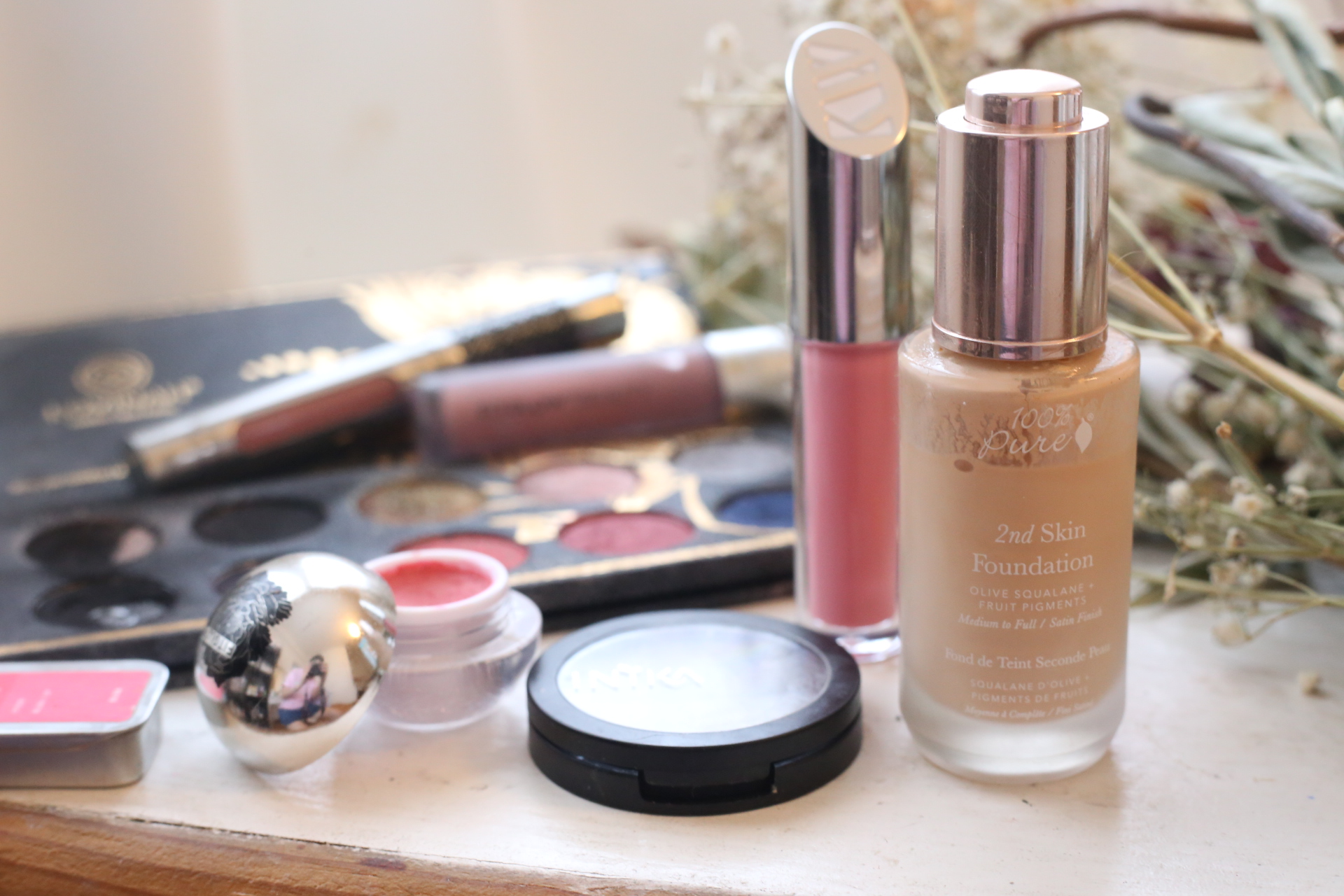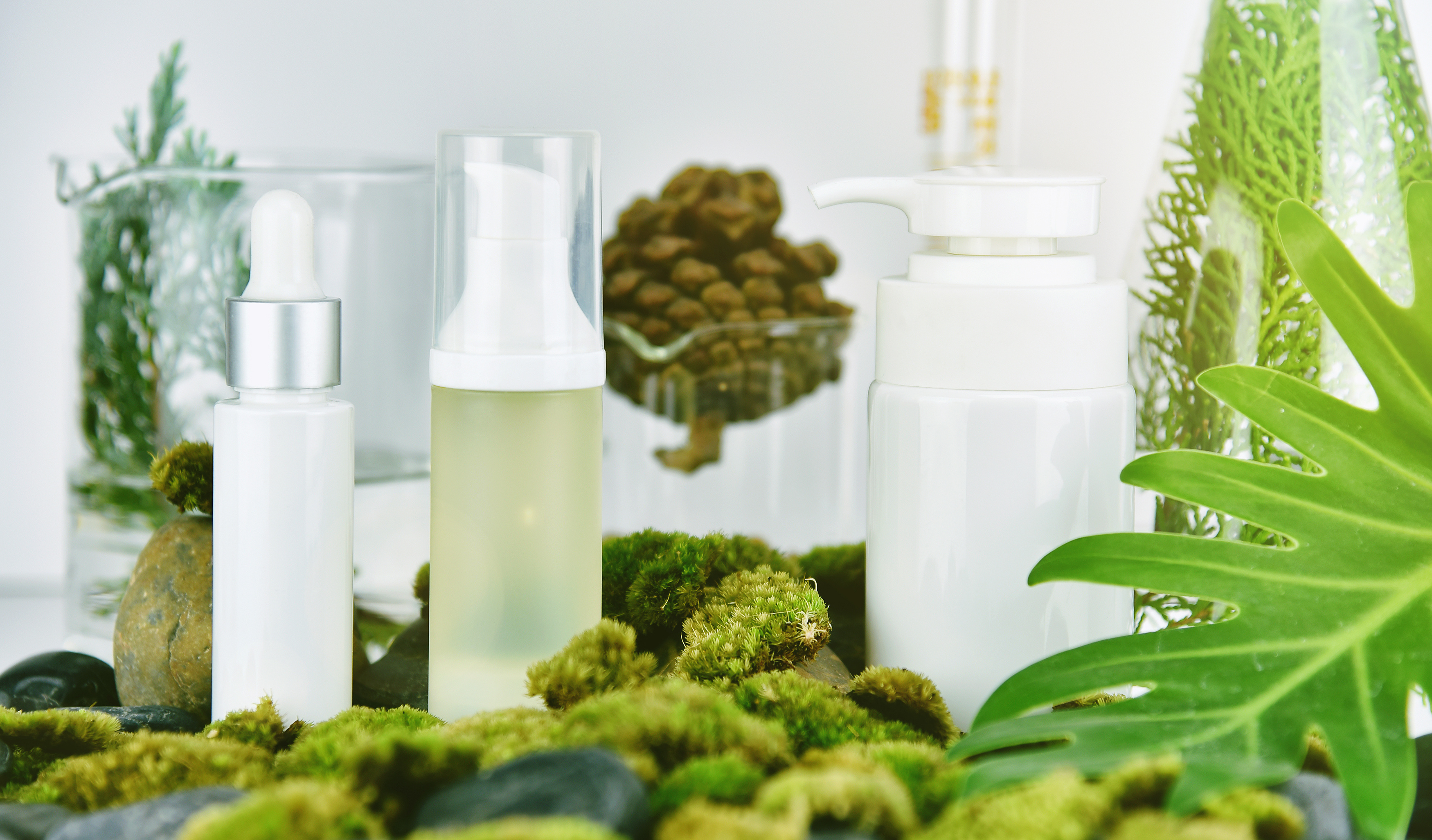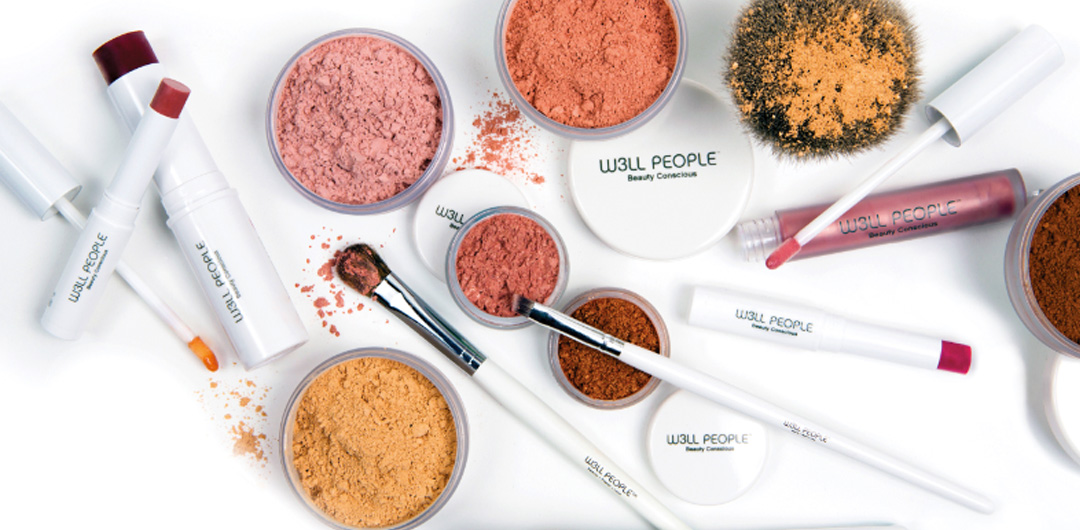The Rise Of Natural And Organic Makeup: A Comprehensive Guide To Healthier Beauty
The Rise of Natural and Organic Makeup: A Comprehensive Guide to Healthier Beauty
Related Articles: The Rise of Natural and Organic Makeup: A Comprehensive Guide to Healthier Beauty
Introduction
In this auspicious occasion, we are delighted to delve into the intriguing topic related to The Rise of Natural and Organic Makeup: A Comprehensive Guide to Healthier Beauty. Let’s weave interesting information and offer fresh perspectives to the readers.
Table of Content
The Rise of Natural and Organic Makeup: A Comprehensive Guide to Healthier Beauty

The beauty industry is undergoing a significant transformation, fueled by a growing awareness of the potential impact of conventional cosmetics on both personal health and the environment. This shift has led to an increasing demand for natural and organic makeup products, promising a safer and more sustainable approach to enhancing one’s appearance. This comprehensive guide delves into the world of natural and organic makeup, exploring its key features, benefits, and considerations for discerning consumers.
Defining Natural and Organic Makeup:
Understanding the terminology surrounding natural and organic makeup is crucial for making informed choices. While often used interchangeably, these terms hold distinct meanings:
- Natural Makeup: This category encompasses products formulated with ingredients derived from natural sources, such as plants, minerals, and essential oils. However, it does not necessarily imply the absence of synthetic ingredients or adherence to strict organic standards.
- Organic Makeup: This classification designates products meeting specific criteria for organic content. Typically, a certified organic label indicates that at least 95% of the ingredients are derived from organically farmed sources, free from synthetic pesticides, herbicides, and fertilizers.
The Allure of Natural and Organic Makeup:
The appeal of natural and organic makeup extends beyond its eco-friendly credentials. Numerous factors contribute to its growing popularity:
- Healthier Skin: Many conventional makeup products contain harsh chemicals, artificial fragrances, and preservatives that can irritate sensitive skin, leading to breakouts, allergies, and other skin issues. Natural and organic formulations, with their emphasis on gentle and nourishing ingredients, often minimize these risks, promoting healthier skin.
- Environmental Sustainability: The production and disposal of conventional cosmetics often leave a significant environmental footprint. Natural and organic makeup, with its commitment to sustainable sourcing and packaging, aims to minimize its impact on the planet.
- Ethical Considerations: Consumers increasingly prioritize ethical practices in their purchasing decisions. Natural and organic makeup brands often align with ethical values, advocating for fair labor practices, animal cruelty-free production, and sustainable packaging.
- Enhanced Performance: Contrary to common misconceptions, natural and organic makeup is not limited to earthy tones and limited shades. Innovation in the industry has led to the development of high-performance formulations offering vibrant colors, long-lasting wear, and sophisticated textures, rivaling their conventional counterparts.
Key Ingredients in Natural and Organic Makeup:
Natural and organic makeup draws upon a diverse range of plant-based and mineral ingredients, each offering unique benefits:
-
Plant-Based Ingredients:
- Aloe Vera: Soothes and hydrates the skin, reducing inflammation and promoting healing.
- Calendula: Possesses anti-inflammatory and antibacterial properties, beneficial for sensitive skin.
- Chamomile: Known for its calming and soothing effects, reducing redness and irritation.
- Coconut Oil: Provides deep hydration and nourishment, leaving skin feeling soft and supple.
- Jojoba Oil: Resembles the skin’s natural sebum, effectively moisturizing without clogging pores.
- Shea Butter: Rich in vitamins and fatty acids, offering intense hydration and protection.
-
Mineral-Based Ingredients:
- Iron Oxides: Provide natural pigments for vibrant color in eyeshadows, blushes, and bronzers.
- Titanium Dioxide: Acts as a natural sunscreen, offering broad-spectrum protection against harmful UV rays.
- Zinc Oxide: Another natural sunscreen ingredient, known for its calming and anti-inflammatory properties.
Benefits of Natural and Organic Makeup:
The transition to natural and organic makeup can offer a multitude of benefits, ranging from improved skin health to a reduced environmental footprint:
- Reduced Skin Irritations: Gentle formulations minimize the risk of allergic reactions, breakouts, and other skin sensitivities commonly associated with conventional makeup.
- Improved Skin Health: Nourishing ingredients promote a healthy, radiant complexion, reducing the appearance of blemishes, fine lines, and wrinkles.
- Sustainable Practices: Natural and organic makeup brands often prioritize eco-friendly packaging, sustainable sourcing, and ethical production practices.
- Enhanced Confidence: Knowing that you are using products that are good for your skin and the environment can boost self-confidence and promote a sense of well-being.
Considerations for Choosing Natural and Organic Makeup:
While the benefits of natural and organic makeup are undeniable, it’s crucial to consider certain factors before making a purchase:
- Certifications: Look for products certified by reputable organizations such as the USDA Organic, Ecocert, or COSMOS, ensuring adherence to strict organic standards.
- Ingredient Lists: Pay close attention to the ingredients list, avoiding products containing potentially harmful chemicals like parabens, phthalates, and synthetic fragrances.
- Patch Testing: Before applying any new product to your entire face, conduct a patch test on a small area of skin to check for any allergic reactions.
- Product Performance: While natural and organic makeup has come a long way in terms of performance, it’s important to find products that meet your specific needs and expectations.
FAQs about Natural and Organic Makeup:
1. Is Natural and Organic Makeup Effective?
Natural and organic makeup has advanced significantly in terms of performance and efficacy. Modern formulations offer vibrant colors, long-lasting wear, and sophisticated textures, rivaling their conventional counterparts.
2. Is Natural and Organic Makeup Safe for Sensitive Skin?
Natural and organic formulations are generally gentler on the skin, reducing the risk of allergic reactions and irritations. However, it’s still advisable to conduct a patch test before using any new product.
3. Is Natural and Organic Makeup More Expensive?
The price of natural and organic makeup can vary depending on the brand and product. While some products may be more expensive than conventional counterparts, the focus on high-quality ingredients and ethical sourcing often justifies the price difference.
4. Is Natural and Organic Makeup Cruelty-Free?
Many natural and organic makeup brands are certified cruelty-free, meaning they do not test their products on animals. Look for certifications from organizations like PETA or Leaping Bunny.
5. How Do I Find the Right Natural and Organic Makeup Products?
Start by identifying your specific skin type and makeup needs. Research reputable brands and read reviews from other users. Consider visiting local health food stores or online retailers specializing in natural and organic beauty products.
Tips for Using Natural and Organic Makeup:
- Proper Storage: Store natural and organic makeup in a cool, dry place, away from direct sunlight, to preserve its freshness and effectiveness.
- Clean Brushes: Regularly clean your makeup brushes and applicators to prevent the buildup of bacteria and product residue.
- Gentle Removal: Use a gentle, oil-based cleanser to remove natural and organic makeup, avoiding harsh scrubbing that can irritate the skin.
- Experiment with Shades: Don’t be afraid to experiment with different shades and textures to find the products that best suit your skin tone and preferences.
Conclusion:
The rise of natural and organic makeup reflects a growing desire for healthier and more sustainable beauty solutions. By embracing these products, consumers can contribute to a more ethical and environmentally conscious beauty industry while enjoying the benefits of gentle, nourishing, and effective formulations. As the demand for natural and organic beauty continues to rise, the industry is expected to innovate further, offering a wider range of high-performance products that cater to diverse needs and preferences. Choosing natural and organic makeup is not just about embracing a healthier approach to beauty but also about making a conscious decision for a better future, both for oneself and the planet.








Closure
Thus, we hope this article has provided valuable insights into The Rise of Natural and Organic Makeup: A Comprehensive Guide to Healthier Beauty. We thank you for taking the time to read this article. See you in our next article!
You may also like
Recent Posts
- The Art Of Persuasion: A Comprehensive Guide To Makeup Product Label Design
- A Comprehensive Look At Mary Kay Cosmetics: Reviews, Insights, And Considerations
- Affordable Skin Care: A Guide To Effective Products Under INR 100
- Navigating The World Of Mary Kay Discounted Products: A Comprehensive Guide
- The Power Of High-Resolution Images: A Guide To Acquiring The Best Visuals For Your Projects
- The Power Of Reviews: Navigating The World Of Makeup Products
- Swiss Beauty Makeup: A Comprehensive Guide To Quality And Affordability
- Embracing Natural Beauty: Makeup Tips And Techniques For Women Over 50
Leave a Reply